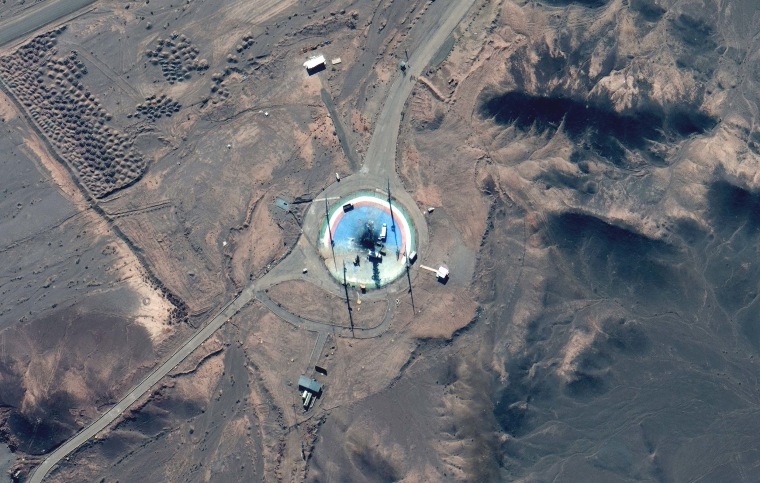In February, Biden administration officials held a closed-door briefing with senators on Iran’s nuclear program, and as we discussed soon after, it was apparently a sobering discussion: Politico reported that U.S. intelligence agencies believe Iran is now at a stage in which it could produce enough material for a nuclear bomb in as little as two months.
It was against this backdrop that NBC News reported yesterday on the latest findings from the International Atomic Energy Agency.
Iran has accumulated enough enriched uranium to build a nuclear bomb, according to new findings from the United Nations atomic agency. The International Atomic Energy Agency also said in a separate report that Iran has failed to provide credible explanations about nuclear material found at several sites in recent years, raising questions about the nature of its nuclear work.
From the United States’ perspective, broadly speaking, I think that there are a couple of angles to this that are worth keeping in mind: How we reached this point, and what we’re going to do about it.
On the former, I feel like I’ve been banging my head against this wall for a long while, but we’re still dealing with the consequences of Donald Trump’s policy toward Iran. It was Joe Cirincione, whose expertise in international nuclear diplomacy has few rivals, who wrote a piece for NBC News last year explaining that the international community has been tasked with trying to “undo the damage Donald Trump caused when he left an agreement that had effectively shrunk Iran’s [nuclear] program, froze it for a generation and put it under lock and camera.”
I continue to believe this is an underappreciated truth. As we’ve discussed, the Iran deal — formally known as the Joint Comprehensive Plan of Action (or JCPOA) — did exactly what it set out to do: The agreement dramatically curtailed Tehran’s nuclear ambitions and established a rigorous system of monitoring and verification. Once the policy took effect, each of the parties agreed that the participants were holding up their end of the bargain, and Iran’s nuclear program was, at the time, on indefinite hold.
And then Trump took office and got to work abandoning the policy for reasons he was never able to explain.
The West lost verification access to Tehran’s program, and Iran almost immediately became more dangerous by starting up advanced centrifuges and ending its commitment to limit enrichment of uranium.
What's more, Special Envoy for Iran Robert Malley told the Senate Foreign Relations Committee last week that after Trump’s decision, Iranian attacks on U.S. personnel in the region got worse, Iranian support for regional proxies got worse, and the pace of the Iranians’ nuclear research program got “much worse.”
And now, according to the International Atomic Energy Agency, Iran’s nuclear program — the one that was “frozen for a generation” and “put under lock and camera” as part of Barack Obama’s breakthrough success — has reached a new, dangerous level.
To the extent that accountability matters, Trump and those who celebrated his decision to abandon a policy that was working have some explaining to do.
As for the near future, the Biden administration still hopes to undo Trump’s mistake and strike a new international agreement, though those talks have faltered in recent months, and a breakthrough, at least for now, appears unlikely.
Daryl Kimball of the Arms Control Association think tank told NBC News yesterday that the International Atomic Energy Agency’s findings “underscore the urgency of restoring compliance” with the international compromise deal.

